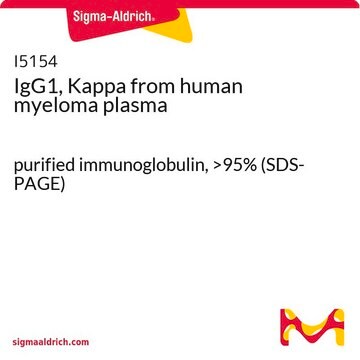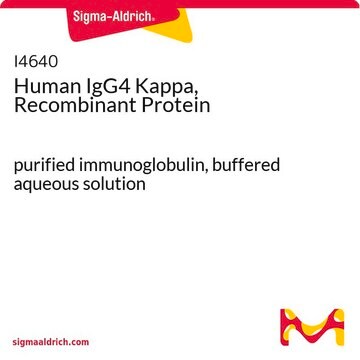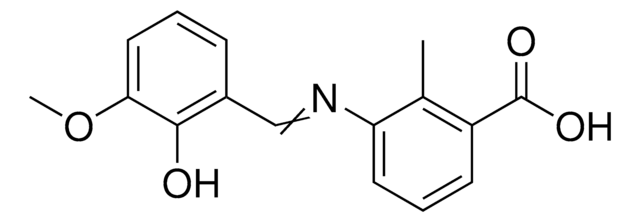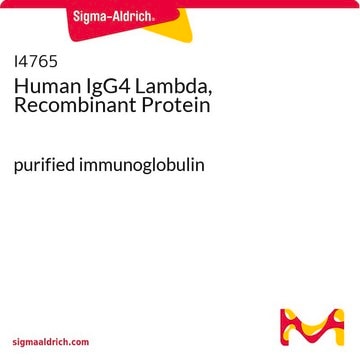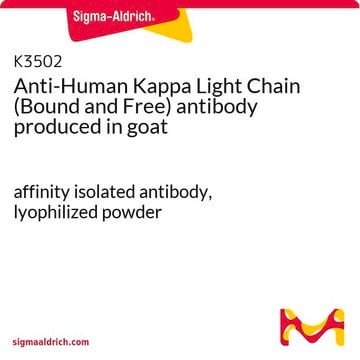I3784
IgG3, Kappa from murine myeloma
clone DX, purified immunoglobulin, buffered aqueous solution
Synonym(e):
Mouse IgG3-κ
About This Item
Empfohlene Produkte
Biologische Quelle
mouse
Qualitätsniveau
Konjugat
unconjugated
Antikörperform
purified immunoglobulin
Klon
DX, monoclonal
Assay
≥95% (microfluidic capillary gel electrophoresis)
Form
buffered aqueous solution
Versandbedingung
dry ice
Lagertemp.
−20°C
Suchen Sie nach ähnlichen Produkten? Aufrufen Leitfaden zum Produktvergleich
Allgemeine Beschreibung
IgG3, κ from murine myeloma specifically recognizes mouse IgG3. Specificity of the mouse IgG3, κ is determined by immunodiffusion and IEP techniques. The purified myeloma preparation is non-reactive with antisera to mouse IgA, IgM, IgD, IgG1, IgG2a and IgG2b.
Anwendung
Physikalische Form
Haftungsausschluss
Signalwort
Warning
H-Sätze
P-Sätze
Gefahreneinstufungen
Eye Irrit. 2 - Skin Irrit. 2
Lagerklassenschlüssel
10 - Combustible liquids
WGK
WGK 2
Flammpunkt (°F)
Not applicable
Flammpunkt (°C)
Not applicable
Analysenzertifikate (COA)
Suchen Sie nach Analysenzertifikate (COA), indem Sie die Lot-/Chargennummer des Produkts eingeben. Lot- und Chargennummern sind auf dem Produktetikett hinter den Wörtern ‘Lot’ oder ‘Batch’ (Lot oder Charge) zu finden.
Besitzen Sie dieses Produkt bereits?
In der Dokumentenbibliothek finden Sie die Dokumentation zu den Produkten, die Sie kürzlich erworben haben.
Unser Team von Wissenschaftlern verfügt über Erfahrung in allen Forschungsbereichen einschließlich Life Science, Materialwissenschaften, chemischer Synthese, Chromatographie, Analytik und vielen mehr..
Setzen Sie sich mit dem technischen Dienst in Verbindung.


